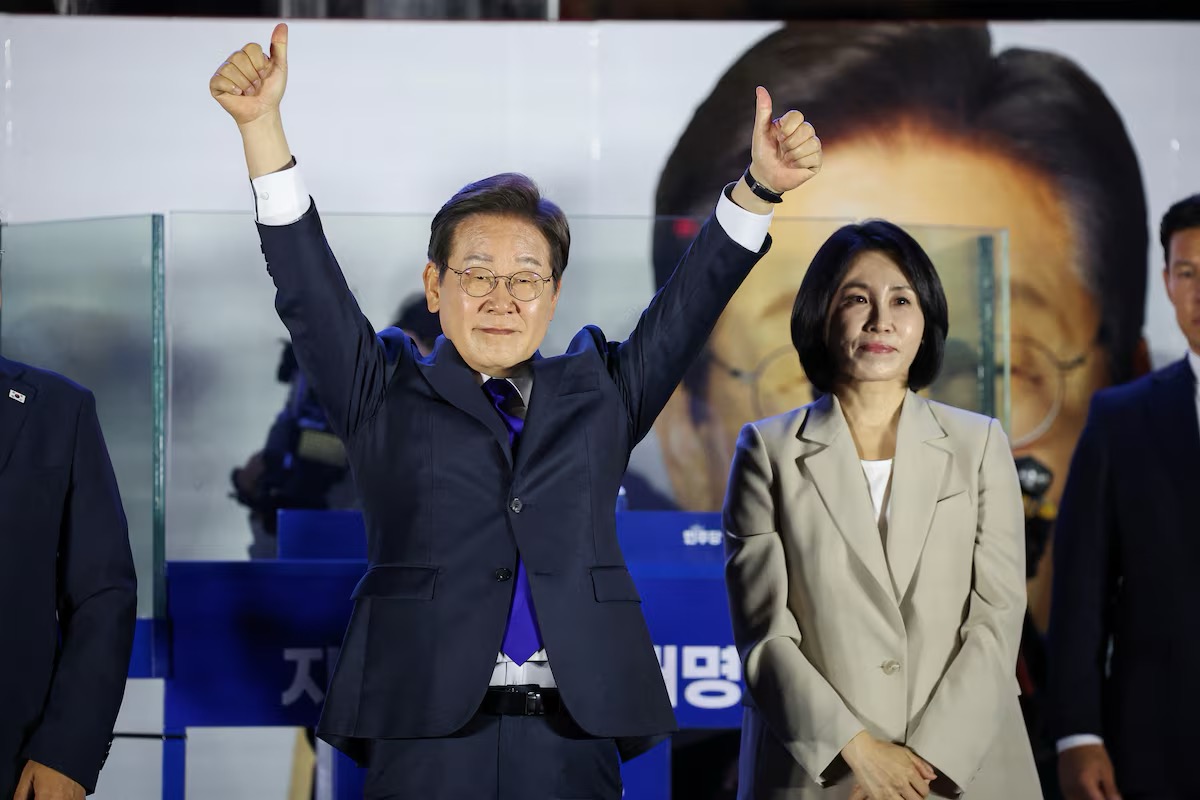SEOUL – Progressive candidate Lee Jae-myung has been elected South Korea next president, securing a decisive victory in an election widely seen as a public rebuke of the previous government’s imposition of martial law earlier this year.
With over 99% of votes counted, Lee leads with 49.3% against conservative rival Kim Moon-soo’s 41.3%, according to the National Election Commission. Nearly 80% of the 44.39 million eligible voters participated, the highest turnout since 1997.
Lee‘s campaign focused on political reform and economic support for mid- to low-income families. His victory is seen as a response to public dissatisfaction with the previous administration’s actions, particularly the controversial martial law decree.
The vote, dubbed a “judgement day” by local media, marked the culmination of months of political turmoil after mass protests against economic inequality and government overreach were met with a heavy-handed military response. Lee’s win signals a sharp shift away from conservative leadership, with voters demanding accountability and democratic restoration.
A Vote for Change
Lee, a former governor known for his populist welfare policies and sharp criticism of elite corruption, framed the election as a choice between “democracy and repression.” His conservative opponent had defended the martial law crackdown as necessary for stability, but exit polls showed voters overwhelmingly rejected that argument.
“The people have spoken—this is a victory for justice and a rejection of authoritarianism,” Lee declared in a late-night victory speech, pledging to “heal the divisions” caused by the crisis.
What’s Next?
The incoming president faces immediate challenges, including:
•Rolling back martial law-era measures
•Addressing economic discontent that fueled the protests
•Navigating tense relations with North Korea and the U.S.
With final results confirming a clear mandate, Lee’s administration is expected to move quickly on police and judicial reforms, though resistance from conservatives in parliament may slow his agenda.
International observers praised the election as fair, but warned that South Korea’s political fractures won’t disappear overnight. For now, however, Lee’s supporters are celebrating—and breathing a sigh of relief after months of turmoil.
Lee is expected to assume office immediately, becoming South Korea’s new president and commander-in-chief.

















